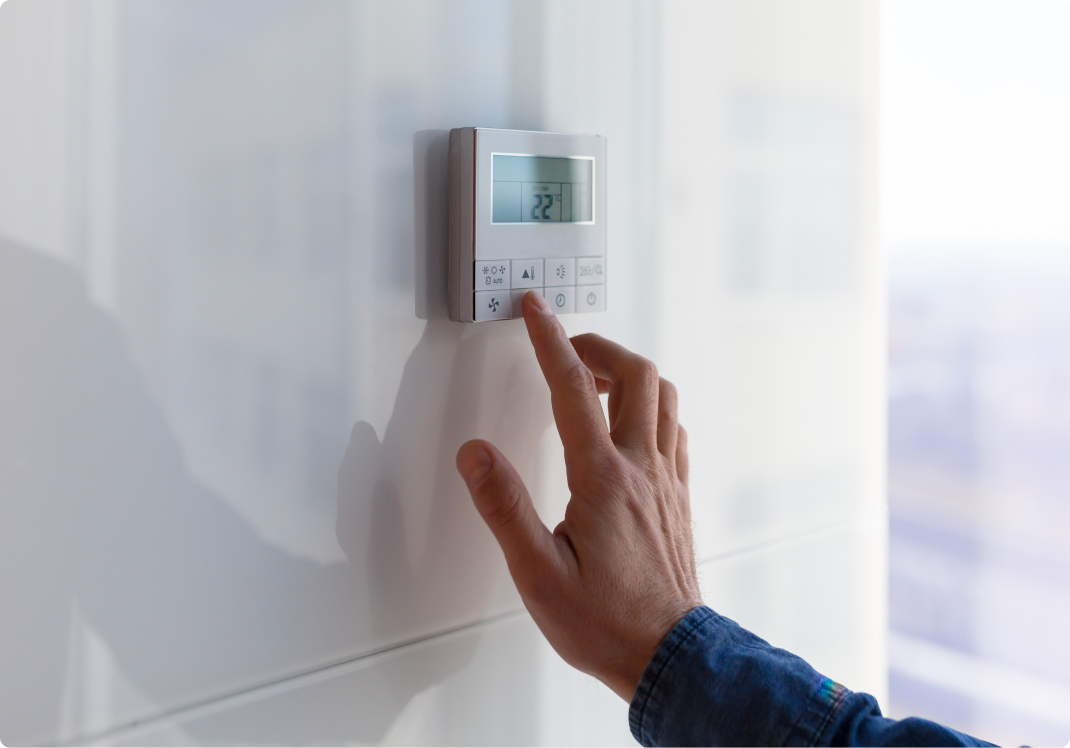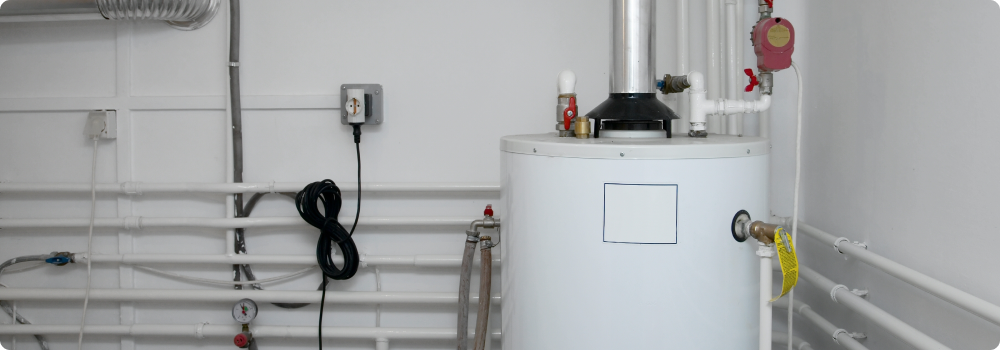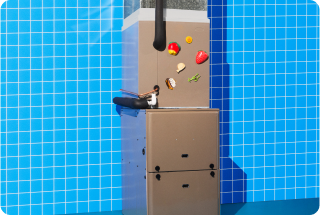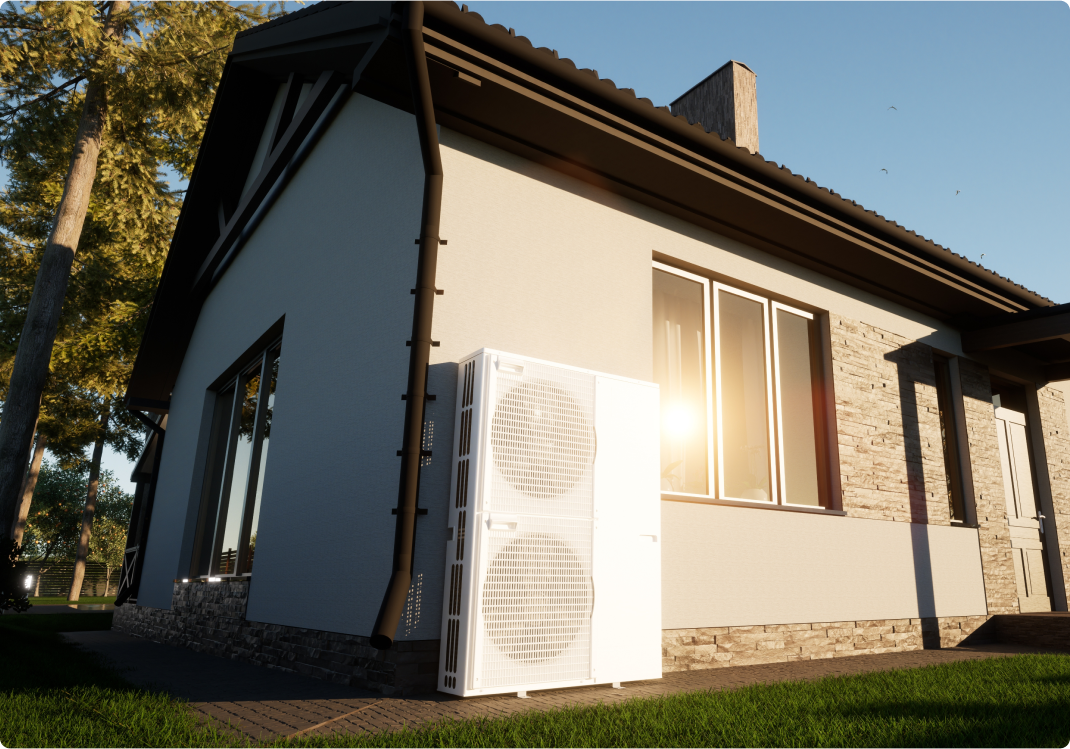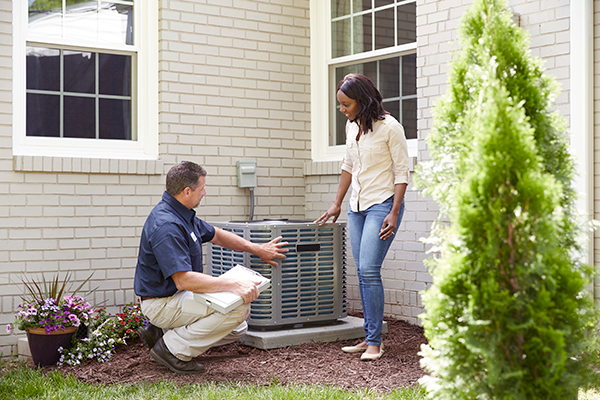Common Reasons for Central Heating Not Working
Even the most reliable heating systems can go haywire, but understanding the reasons why your central heating is not working can help you troubleshoot and decide whether you can fix it yourself or need to call an HVAC Pro.
Why Is My Heater Not Putting Out Heat?
Is your system blowing cold air when you’re craving warmth? Or maybe your central heat is not turning on at all? Let’s troubleshoot and warm things up:
Thermostat Issues: First things first - check your thermostat and make sure it’s set to the right temperature and “heat” mode.Dirty Air Filter: A clogged air filter is like a stuffy nose for your furnace. Swap out your air filter and watch your system breathe easy again.Leaky Ductwork: Do some air duct detective work. Check for leaks, seal them off as you go, and insulate your ducts accordingly.Pilot Light Problems: Check to ensure your pilot light is lit. If not, check the gas valve to verify it’s turned on and open. If it still won’t light, consult an HVAC repair professional.Lack of Fuel: Confirm your furnace is receiving the necessary fuel it needs to run properly.
Why Won’t My Heater Shut Off?
If your heater is pulling a marathon and refusing to shut off, here are some quick DIY checks to see why your heater is not working correctly:
Thermostat Settings: Make sure your thermostat is set to “auto” instead of “on.”Thermostat Wiring: Take a closer look at your thermostat’s wires to make sure everything is connected correctly. Reset your thermostat to factory settings and try running the system again. If it’s still acting up, it might be time for a replacement.Blower Malfunction: If replacing the thermostat doesn’t fix the problem, your furnace blower might be malfunctioning. An HVAC professional should handle this issue immediately.
Why is My Central Heating Not Working in Certain Rooms?
Cold spots in your home can feel like unwelcome guests. Let’s track down why some rooms feel left out in the cold:
Dirty Air Filters: Check your air filters and change them if needed.Inadequate Ductwork: Inspect your ducts for leaks. If you suspect a ductwork issue, contact an HVAC professional to inspect and repair your ductwork.
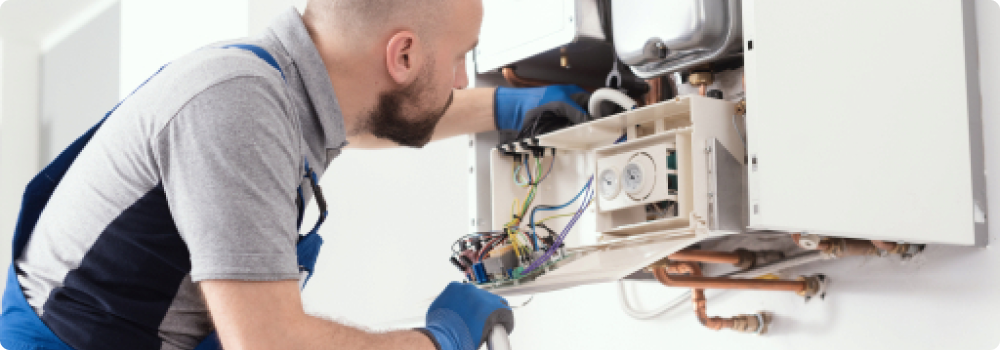
When DIY Won’t Do
Sometimes, no matter how handy you are, DIY central heating repairs just won’t do. It’s time to request service from an HVAC Pro when your pilot light won't stay lit, you hear strange noises from your furnace, there's a strong gas smell (in which case, leave the house immediately and call your gas company), your system repeatedly turns on and off, or if you’re still having issues after trying DIY fixes.
Preventive Care and Maintenance: The Key to Cozy Comfort
As with any of your home's major systems, preventive maintenance is key to ensuring the smooth and efficient functioning of your central heating. Consider having a trusted HVAC Pro inspect and maintain your furnace every year before cold weather settles in.
Is Your Central Heating Taking A Winter Vacation? Don’t Worry, Be Warranty.
With an American Home Shield home warranty plan, you're protected against the wear and tear that comes with the everyday use of your heating system. We cover a wide range of heating components, including ductwork. But we don't stop at repairs. We’re all about helping you maintain your system’s efficiency, too. That’s why we offer services like our seasonal HVAC tune-up program, so you can keep your HVAC running smoothly and potentially save money on energy bills.
And if your system is beyond repair? No sweat (or rather, do sweat - you need the warmth). With our New HVAC Program, you can leverage our national buying power to save thousands* off national retail pricing on a new HVAC system. Plus, when you get a new HVAC, you can breathe easier knowing it’s running more efficiently.
